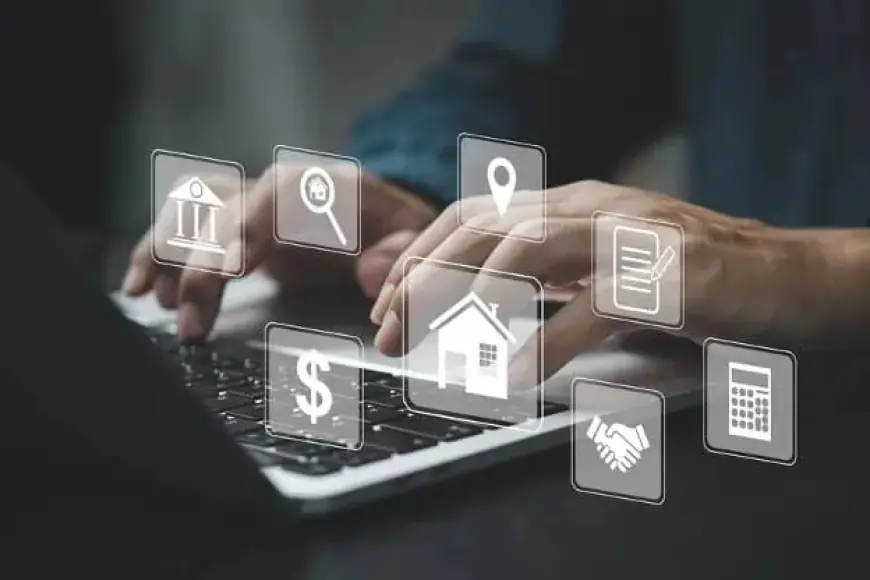Residential Property Management Software Market 2030: Key Statistics, Size Overview, and Report

According to TechSci Research report, “Residential Property Management Software Market – Global Industry Size, Share, Trends, Competition Forecast & Opportunities, 2030F”, Global Residential Property Management Software Market was valued at USD 10.89 billion in 2024 and is expected to reach USD 20.87 billion by 2030 with a CAGR of 11.28% through 2030. This surge is propelled by the convergence of urbanization, digital transformation in real estate, tenant-centric demands, and unified property operation strategies. The landscape is ripe with innovation—but also faces challenges around data security, regulatory compliance, and platform interoperability.
Request For Sample Copy of Report For More Detailed Market insight: https://www.techsciresearch.com/sample-report.aspx?cid=21795#requestform
Industry Key Highlights
-
Market Magnitude & Momentum
A doubling in size over six years underscores the accelerating digital revolution in residential property management across global markets. -
CAGR of (2024–2030)
This impressive growth trajectory highlights broad-based adoption across segments and geographies. -
Dominant End‑User Segment
Property managers lead adoption in 2024 and are expected to cement dominance through platform enhancements, process automation, and advanced analytics. -
Regional Momentum
Asia Pacific emerges as the fastest-growing region, driven by rapid urbanization, digital infrastructure improvements, and rising investor activity in residential real estate. -
Sector Challenges
While digitization presents opportunities, the need for rigorous cybersecurity, local compliance, and training remain barriers—particularly for SMEs and emerging markets. -
Platform & Deployment Trends
Cloud platforms—offering automated processes, standardized workflows, and tenant portals—continue to replace legacy systems and drive usability at scale.
Browse over XX Market data Figures spread through XX Pages and an in-depth TOC on "Global Residential Property Management Software Market.” @https://www.techsciresearch.com/report/residential-property-management-software-market/21795.html
Emerging Trends
1. Tenant-Centric Portals & Self-Service
Modern platforms offer mobile-responsive portals where tenants schedule maintenance, submit payments, and access community news—boosting satisfaction and retention rates.
2. AI-Driven Predictive Maintenance
Platforms utilize machine learning to forecast facility failures and optimize repair schedules—reducing downtime and repair costs.
3. Platform Integrations
Seamless connections with accounting, CRM, insurance, IoT sensors, and smart-home devices are becoming essential differentiators.
4. Proptech Ecosystem Expansion
Incumbent firms are embedding technology stacks that include inspection tools, digital leasing, smart locks, and renter-credential services.
5. Remote & Hybrid Access
Cloud-based tools enable property managers to work anywhere—run dashboards and assignments remotely, supporting evolving work modalities.
6. Data Analytics for Strategic Decisions
Advanced dashboards aggregate KPI data—like occupancy rates, rent collection patterns, tenant complaints, and maintenance cycles—to optimize operations and asset value.
7. Mobile-First User Experiences
Mobile apps empower managers and tenants with push notifications, chat support, work-orders, lease renewals, and payments—on the go.
8. Integration of IoT
Smart meters, connected thermostats, leak detectors, and security sensors linked to management platforms enable real-time alerts and proactive repairs.
9. Blockchain for Rental Records
Early-stage use cases use blockchain for ledger transparency—storing contracts, rental histories, and security deposits with unalterable audit trails.
10. Low-Code Customization
Configurable platforms allow firms to tailor workflows, design tenant handbooks, or add custom fee structures without code development.
Key Market Drivers
1. Operational Efficiency & Scale
Large property portfolios leverage automated lease tracking, maintenance workflows, vendor coordination, and financial handling to reduce overhead and errors.
2. Enhanced Tenant Experiences
From online rent payments and maintenance portals to moving coordination and notifications—digital solutions boost retention through convenience.
3. Rising Urbanization
Growth of multifamily developments and urban rentals increases the need for scalable management systems to handle tenant volumes and service standards.
4. Cloud Adoption & Cost Efficiency
Cloud offerings eliminate infrastructure costs, ensure uptime, and enable frequent updates—lowering total cost of ownership while enabling rapid deployment.
5. Technology Convergence
Integration with IoT, AI, mobile, CRM, and financial tools drives platforms toward comprehensive property ecosystems.
6. Data Security & Regulatory Standards
Compliance with GDPR, CCPA, and data residency norms pushes companies to build robust security protocols and vet provider credentials carefully.
7. Generational Expectations
Tech-savvy millennials and Gen Z renters expect transparent, tech-first renter experiences—accelerating demand for digital-first property platforms.
8. Investor Interest in Proptech
Growing VC/PE interest in proptech fuels innovation and platform enhancements—from VR tours and digital leasing to financial analytics.
9. Pandemic aftereffects
The shift toward touchless interactions, remote management, and virtual tours continues to favor cloud-based property systems.
10. Demand for Analytics-Driven Insights
Operators now seek tools that distill rent trends, vacancy stats, renter satisfaction, and maintenance ROI into actionable strategy.
Competitive Analysis
Yardi Systems, Inc.
A pioneer with full-stack offerings—including Yardi Voyager and Breeze—targeting mid-tier to institutional firms. Strengths include integrated accounting, marketing, and facilities modules. Challenges: adoption barriers for smaller firms due to complexity.
MRI Software LLC
Known for flexible cloud-based solutions, partner integrations, and CPA-grade accounting; excels in multi-jurisdictional compliance. Faces competitive pressure on journey from on-premises to cloud ease-of-use.
AppFolio, Inc.
Customer-friendly, mobile-first platform suited for SMBs; integrates online payments, maintenance workflows, and marketing tools with strong POS reviews.
RealPage, Inc.
Enterprise-grade systems for multifamily and student housing with data services analytics. Strengths in performance benchmarking; some adoption friction exists with smaller portfolios.
Entrata, Inc.
Unified suite with leasing tools, communications, resident app, and back-office; valued for modern UX but needs broader market penetration.
InnQuest Software
Mid-tier hospitality-focused; offers PMS with booking, housekeeping, and point-of-sale modules—more niche in appeal.
Buildium, Inc.
Popular with small to mid-sized portfolios; offers accounting, maintenance tracking, and renter portals with intuitive UX and reduced setup complexity.
CoStar Group, Inc.
Leverages vast data repository to provide analytics to managers. Offers streamlined workflows but is heavier on data reporting than process orchestration.
ResMan, LLC
Comprehensive platform for multifamily with performance metrics, marketing, and budgeting; emerging in regional growth segments.
Storable, Inc.
Targets self-storage management with tenant portals, payment systems, lead management, and integrations—growing niche market.
Competitive Landscape Summary:
The market is segmented by size, functionality, and vertical. Key differentiators: pricing, integration ecosystems, analytics maturity, and UX. Cloud-native firms lead innovation; legacy vendors may need modernization. Niche providers address specialized requirements.
Future Outlook
Looking beyond 2030, the property management software market is projected to evolve into a holistic Proptech experience platform featuring:
-
AI-Driven Insights: Automated pricing, leasing patterns, credit scoring, tenant matching, and churn prediction.
-
Integrated Mobility & IoT: Connected sensors for utility optimization and smart property alerts.
-
Virtual & Augmented Reality: Digital touring and staging for superior leasing conversions.
-
Green & ESG Modules: Energy usage dashboards, carbon footprint tracking, and ESG reporting.
-
Blockchain Rent Ledgers: Immutable transactional records for leases and disputes.
-
Marketplace Integration: Vendor, cleaner, repair, insurtech, and financial services integration.
-
Advanced Analytics & BI: Dashboard-led strategic optimization and investor-level transparency.
-
Hyper-Personalized User Experiences: AI chat, digital concierge, and service automation.
-
Conditional Marketplaces: Localized marketplace offerings—e.g., furniture rentals, local vendor services.
-
APIs & Developer Platforms: Ecosystem openness with custom modules and third-party connectors.
Customers can also request for 10% free customization on this report.
10 Benefits of the Research Report
-
Comprehensive Industry Insight
Covers market size, segmentation, deployment modes, and geographies from 2024–2030. -
Strategic Forecasting
Provides validated CAGR and growth pathway for informed investment decisions. -
Competitive Intelligence
Profiles major players, differentiates tactics, and reveals market gaps. -
Trends & Innovation Map
Identifies evolving dynamics—AI, IoT, tenant experience, ESG layer. -
Risk & Challenge Identification
Outlines cybersecurity, data regulations, legacy integrations, and tech adoption barriers. -
Investment Opportunity Matrix
Highlights fast-growing regions (e.g., Asia Pacific), SME cloud solutions, and vertical niches. -
Operational Roadmaps
Offers deployment guides across property types: single-family, multifamily, hospitality, self-storage. -
Custom Patient Solutions
Allows 10% custom scope to focus on use cases, geos, or tech integrations. -
ROI & Cost-Benefit Analysis
Outlines investment payback timelines for automated leasing, maintenance, and tenant tools. -
Benchmarking & Best Practices
Presents market standards for retention, satisfaction, occupancy, and revenue growth.
Contact US:
Techsci Research LLC
420 Lexington Avenue, Suite 300,
New York, United States- 10170
Tel: +13322586602
What's Your Reaction?
 Like
0
Like
0
 Dislike
0
Dislike
0
 Love
0
Love
0
 Funny
0
Funny
0
 Angry
0
Angry
0
 Sad
0
Sad
0
 Wow
0
Wow
0

















































